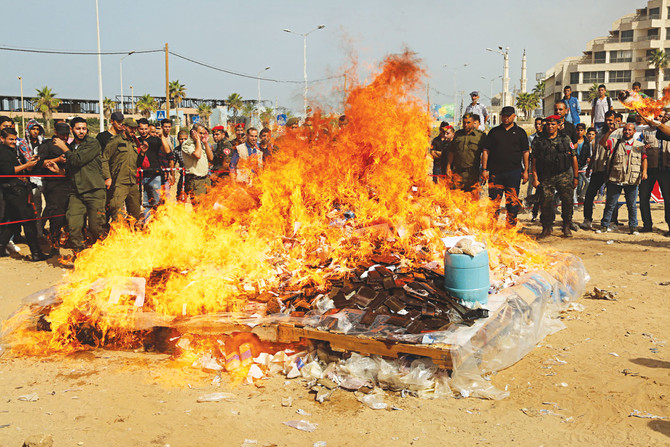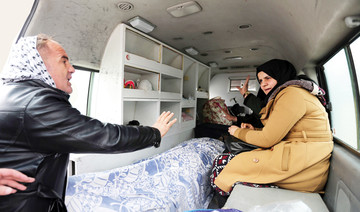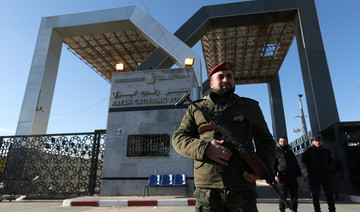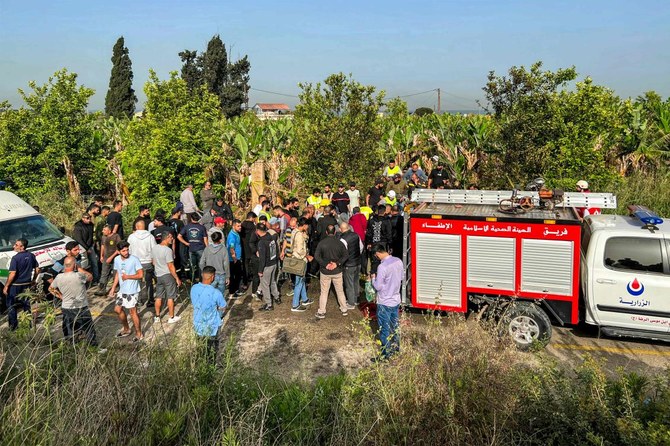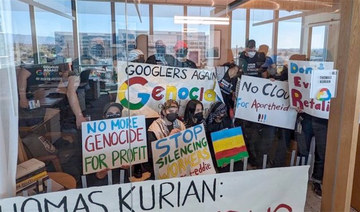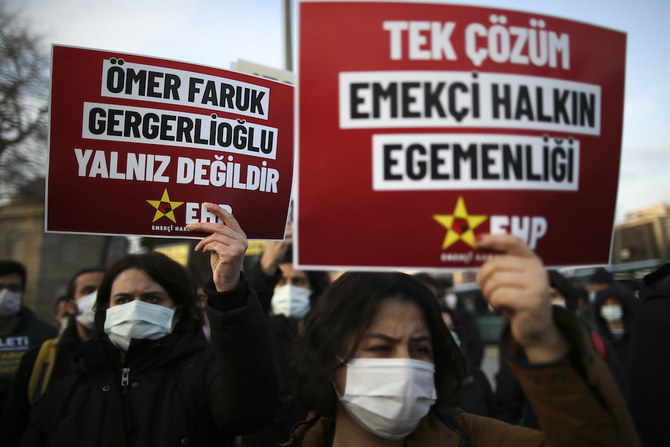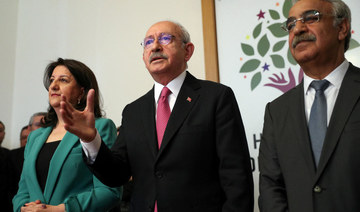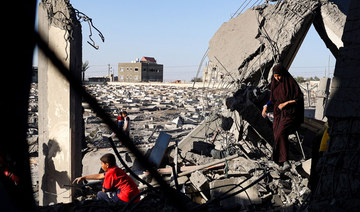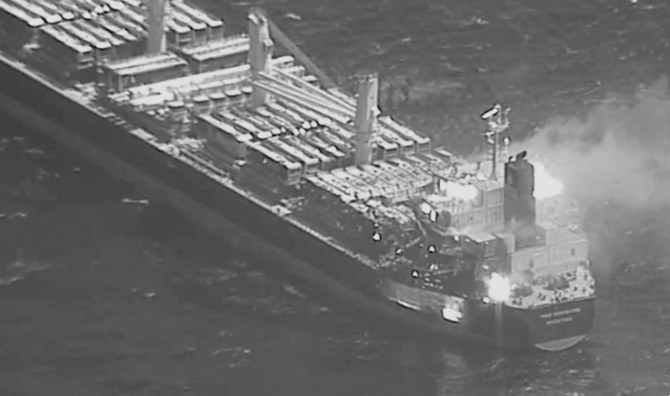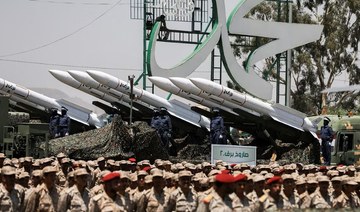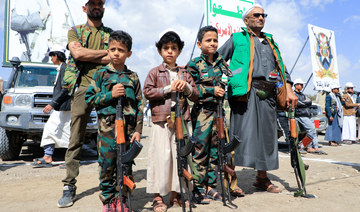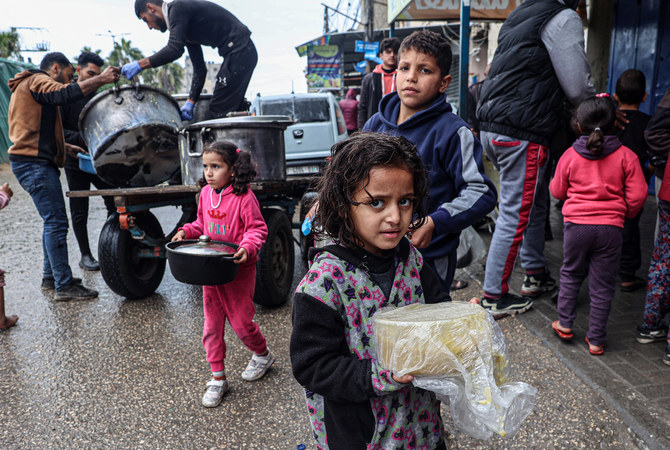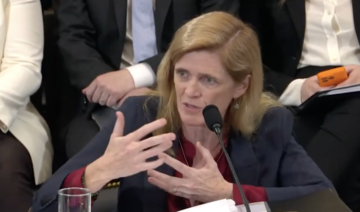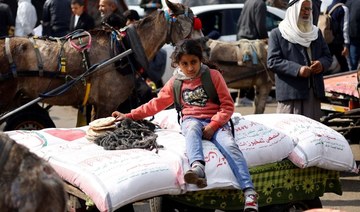GAZA: It started with a single pill. Mohammed was working as a digger of tunnels through which goods were being smuggled into the southern Gaza Strip from Egypt when he said felt the need for a “pep pill” to help him make it through the daily grind of grueling 18-hour workdays.
In 2010 he started to take tramadol, also known by the brand name Tramal, an opioid pain medication used to treat moderately severe pain, which is commonly prescribed after surgery or for musculoskeletal problems.
At the time, Mohammed was 30 years old, with a degree in information technology but little prospect of landing a job. A resident of the “Brazil” neighborhood of Rafah, next to the border with Egypt, he lived in a modest home with his parents and five brothers, clinging to hopes for a brighter future on the strength of his university education. With the income from his salary as an IT professional, Mohammed imagined, he would save his family from the clutches of poverty.
Soon his dreams collided with reality, however, in the form of dire economic conditions and a lack of job opportunities as a result of the blockade of the coastal enclave imposed by Israel in 2007. Gaza was effectively placed under a land, air and sea siege, as Egypt and Israel closed their border crossings after a takeover by the Palestinian Islamist group Hamas.
Two years earlier, in 2005, Israel had unilaterally disengaged with Gaza, ignoring warnings by the Palestinian Authority. The following year, the Authority held elections from which Hamas emerged victorious, paving the way for a unity government formed with the secular Fatah party in March 2007.
By June the two groups had fallen out and, after a brief but deadly power struggle, Hamas succeeded in driving out Fatah from the Gaza Strip.
Under these circumstances, the only work Mohammed could find was digging tunnels at a depth of 30 meters. From the start, he struggled with the bone and muscle aches brought on by long hours spent in a cramped working space. One day, a co-worker offered him half of a tramadol pill.
“It had a magic effect,” he said. “It helped to improve my mood and tone and increase my ability to work long hours.”
The Hamas government does not provide any official data from which a clear picture of the drug problem in Gaza can be drawn. However, anecdotal evidence suggests the widespread use of narcotics, especially ecstasy, which is sold in the form of tablets with such names as “happiness,” “rotana” and “lyrica,” cannabis and opioids. Despite attempts by security forces to stem the flow of drugs into Gaza, the high demand ensures a steady supply.
The scale of the drug problem can be further gauged from the periodic claims published on the website of the Ministry of Interior about the large quantities of drugs seized by the authorities. On Oct. 2, 2018, for example, Major Ahmed Al-Shaer, the head of the drug control department in Rafah, announced the seizure of 33 boxes of cannabis, 7,000 ecstasy tablets and 62 cartons of tramadol.
Despite many awareness campaigns, including a recent one titled “For yourself, Save it,” the Hamas government has by all accounts failed to deliver on its promise of a “drug-free Gaza.”
Fadl Ashour, a consultant psychiatrist and neurologist, said that during a study in the Gaza Strip three years ago he found the number of addicts to be as high as 200,000. He attributes the use of drugs such as opioids, stimulants and hallucinogens by young men and young women to the feelings of hopelessness and anxiety that pervade the Gaza Strip.
Said, a 26-year-old, is another person who fell victim to a major social problem that remains largely hidden from public view. Addicted to tramadol, he realized he had to kick the habit when the price rose sharply and he could no longer afford it.
“I lost my job in the smuggling tunnels after the Egyptian army tightened its grip over the area and destroyed most of them during intensive campaigns in 2013,” he said. With his livelihood gone, he could not longer afford afford to pay the going rate of 20 Israeli shekels for each tablet. But after popping up to 10 pills a day, detoxification was not easy. Due to a lack of facilities and services to help people with drug problems, Said had to deal with the withdrawal on his own. He describes the experience as excruciating. Symptoms such as severe pain in his bones and abdomen, stomach disorders and blurred vision persisted for about a month before gradually easing.
“Help from family and loved ones can cut the time required to get rid of addiction by half,” he added.
Life is just as precarious for many of those involved in the supply of drugs in Gaza. Abu Zuhair, for example, has been in the tramadol businesses since the early days of the blockade and is facing a one-year jail term after being caught with two pills. The 39 year old said the price of an ecstasy tablet ranges from 150 to 200 shekels, while a tramadol pill sells for 20 shekels.
Getting hold of the opioid is much easier than obtaining hard drugs, he revealed. Tramadol is smuggled into Gaza mainly from Sinai in Egypt through tunnels, especially in the eastern part of Rafah, near the border with Israel, an area beyond the tight control of the Hamas security forces, he said. When border controls are periodically tightened by the Palestinian and Egyptian authorities, tramadol still finds its way into Gaza, Abu Zuhair added, as smugglers send shipments by sea in small boats equipped with twin engines for speed, or with the help of divers.
In 2015 the Narcotics and Psychotropic Substances Act was adopted by the Legislative Council with the backing of Hamas’s Change and Reform bloc, although it failed to get the endorsement of President Mahmoud Abbas. However, the efficacy of the law, under which drug-related activities ceased to be a misdemeanor and instead became a crime, is open to question given that supply and demand apparently remains so high.
Abu Zuhair scoffs at the recent law, which he said targets addicts and petty dealers but poses little threat to the drug lords who know how to pull strings to stay out of legal jeopardy. During his own brushes with the law, he said, most of the people he encountered in custody were small-time users or people who had sold a few tablets to help make ends meet in times of financial crisis.
Gaza resident Yasser said he nearly ended up in prison for a minor breach of the law. The 47-year-old told how he was picked up in the southern town of Khan Younis for consuming one piece of a split tramadol pill and spent an hour in police custody before an officer decided to let him go after verifying his version of the incident. Yasser said he was taking the drug as self-medication for a sexual disorder for which doctors in Gaza had no treatment.
Said, meanwhile, is now a recovering addict who is proud that he managed to kick his habit and regain the trust of people who once treated him as a social outcast and avoided him. He said he has found a job at a gas station and is saving up to get married.
As inspiring as his story is, Said is aware that his transformation is an exception to the rule. More than five years after he was first tempted to use tramadol, the conditions in Gaza that led to his addiction have only changed for the worse.


